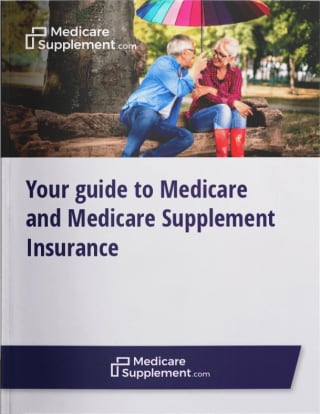What to Look For in a Medigap Supplement Company
Here’s what to look out for before you enroll.
Unstable or Rapidly Rising Premiums
One of the biggest complaints about the “worst” Medicare Supplement companies is unpredictable rate increases.
- Some insurers use attained-age rating, meaning your premium goes up automatically as you get older.
- Others may file large rate hikes each year, even if your health or coverage hasn’t changed.
- Smaller or newer companies sometimes offer low initial premiums to attract customers — only to raise them sharply later.
Tip: Before enrolling, review the company’s rate increase history in your state. You can check this through your state’s Department of Insurance.
Poor Customer Service and Claims Handling
A Medicare Supplement plan should make healthcare simpler, not harder. But the worst companies often have:
- Long call wait times or limited customer support hours
- Poor communication when resolving billing or claim issues
- Confusing policy documents or hard-to-reach service teams
Tip: Search for reviews and complaints with your state insurance department or the Better Business Bureau. Consistent customer service problems are a red flag.
Low Financial Strength Ratings
Medigap is long-term coverage — you want a company that will still be around years from now.
If a company has low financial ratings from agencies like A.M. Best, Moody’s, or Standard & Poor’s, it may be more vulnerable to market changes or claim-paying issues.
Tip: Always check financial strength ratings before you buy. An “A” or higher from A.M. Best generally signals a stable, trustworthy company.
Limited Plan Options or Restricted Availability
The worst Medicare Supplement companies sometimes don’t offer all standardized plans, or they limit enrollment to a few states.
If a company only sells one or two plans (for example, only Plan A or Plan N) or doesn’t offer coverage in your area, that limits your ability to find a plan that fits your needs and budget.
Tip: Look for insurers that offer multiple standardized plan options — such as Plan G and Plan N — and have strong availability across several states.
Misleading or Aggressive Sales Tactics
Unfortunately, some companies or third-party marketers use high-pressure or misleading sales tactics, especially during open enrollment periods.
Be cautious of:
- Promises of “zero-cost” Medigap coverage (there’s always a premium)
- Claims that you must “act immediately” or lose benefits
- Representatives who can’t explain the differences between plans
Tip: Always work with a licensed insurance agent or broker who can clearly explain your options without pressure. You can verify licensing through your state’s insurance department.
Limited Digital Tools and Transparency
Today’s seniors value convenience and clear information. Companies that hide basic details like plan availability, sample rates, or contact options may not prioritize transparency or service quality.
Tip: Reputable insurers usually offer clear plan outlines, online support tools, and transparent contact information on their websites.
Frequent Complaints or Regulatory Issues
Every insurer receives occasional complaints — but a pattern of unresolved issues or regulatory actions is cause for concern.
You can check complaint ratios or enforcement actions through:
- State Insurance Department websites
- The National Association of Insurance Commissioners (NAIC) Consumer Information Source
Tip: Compare complaint ratios against the market average to identify outliers.
Lack of Value-Added Benefits or Policy Flexibility
While Medigap plans are standardized, companies can differentiate themselves through added benefits like discount programs, household premium savings, or foreign travel emergency coverage.
The least competitive companies often lack these extras, offering the bare minimum at above-average prices.
Final Thoughts
The “worst Medicare Supplement companies” aren’t necessarily the cheapest or newest — they’re the ones that fail to deliver stability, transparency, and reliable service.
Before choosing a Medigap policy, take time to research:
- Rate history and financial ratings
- Customer service reputation
- Plan options and coverage area
- Complaint records and transparency
Remember: all Medicare Supplement plans are standardized, but the company you choose determines how smoothly your experience will go.



